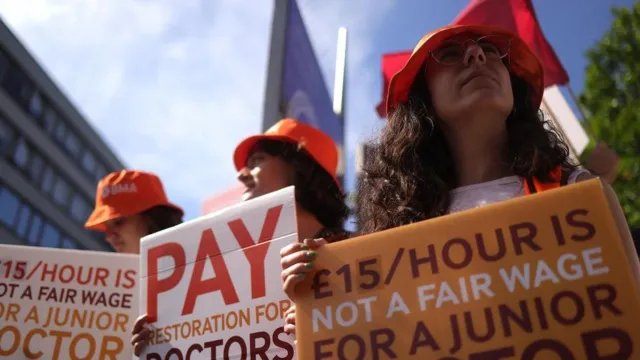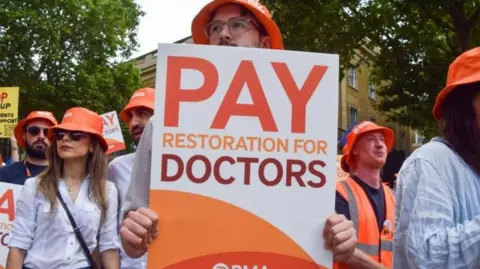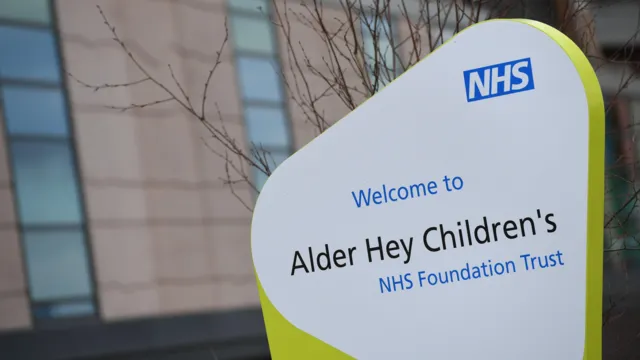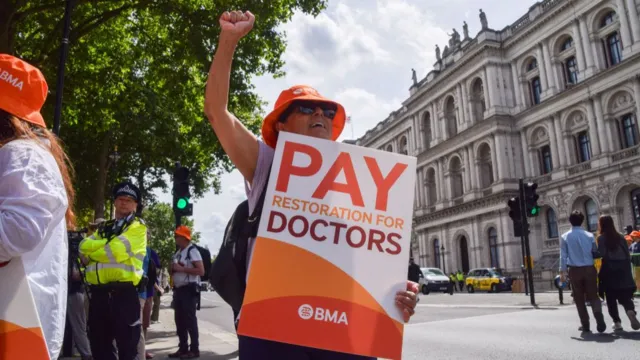England’s Resident Doctors Announce Five-Day Strike in July Over Pay Dispute
England’s Resident Doctors Announce Five-Day Strike in July Over Pay Dispute
Resident doctors across England are set to initiate a significant five-day strike action commencing on July 25th, concluding on July 30th. This decision follows a decisive vote by the medical professionals, who were previously known as junior doctors, to undertake further action in protest against their current pay. The strike is scheduled to begin at 07:00 on July 25th and will end at 07:00 on July 30th, providing a critical two-week window for the government to engage in pay negotiations.
The British Medical Association (BMA) confirmed that a meeting with the Health Secretary on Tuesday aimed to avert the strike action. However, the BMA stated that the government maintained its position of refusing to negotiate on pay. This stance has left the resident doctors with no alternative but to proceed with the planned industrial action.
Health Secretary Wes Streeting has strongly criticized the planned strike, describing it as “unnecessary and unreasonable.” He expressed deep concern for the state of the NHS, famously commenting, “The NHS is hanging by a thread – why on earth are they threatening to pull it?” Streeting highlighted that the doctors have received a substantial 28.9% pay increase over the past three years. He also noted that the strike action, in his view, serves neither the interests of patients nor the medical staff themselves, calling it “without historic precedent.”
Streeting further elaborated on the government’s efforts, mentioning a meeting with the doctors’ representatives and an offer to meet with the entire resident doctor committee. He urged the BMA to engage in dialogue and find a resolution, stating, “I met with them yesterday and offered to meet with their entire resident doctor committee this morning – that has not been taken up.” He implored them to “get around the table and agree a way forward.” The Health Secretary had previously conveyed to The Times newspaper that the walkouts would be “a disaster for their members and a disaster for patients,” warning that the public would “not forgive” such actions.

For the current financial year, resident doctors have been granted a 5.4% pay rise, which is expected to be reflected in their salaries starting in August. This follows a significant 22% increase awarded over the preceding two years. Despite these increases, the BMA contends that doctors’ wages have effectively decreased by approximately 20% in real terms since 2008, a statistic that fuels their ongoing demand for pay restoration.
Dr. Melissa Ryan and Dr. Ross Nieuwoudt, co-chairs of the BMA’s resident doctors committee, stated that they had exhausted all avenues to prevent strike action. They emphasized their efforts to open negotiations for pay restoration during talks with the government on Tuesday. However, they expressed that the government’s focus remained on “non-pay elements” without providing specific details.
The co-chairs asserted that they were left with “no choice” but to proceed with the strike without a “credible offer to keep us on the path to restore our pay.” They conveyed a strong message: “No doctor wants to strike, and these strikes don’t have to go ahead. If Mr. Streeting can seriously come to the table in the next two weeks we can ensure that no disruption is caused. The government knows what is needed to avert strikes. The choice is theirs.”
Government officials responded on Tuesday by reiterating that pay negotiations would not be reopened, asserting that further concessions were not possible, stating they “could not be more generous than we already have.” A spokesperson for Downing Street added that the medical professionals had “received the highest pay award across the public sector for two years in a row.”
Currently, the basic annual salaries for resident doctors in England range between £37,000 and £70,000, depending on their experience and for a standard 40-hour week. Additional payments are provided for unsociable hours, such as night shifts and weekend work. It’s important to note that these figures do not yet include the most recent 5.4% pay award for the current year.
This marks a continuation of industrial action, as resident doctors participated in 11 separate strikes throughout 2023 and 2024, underscoring the persistent nature of this pay dispute.



Post Comment